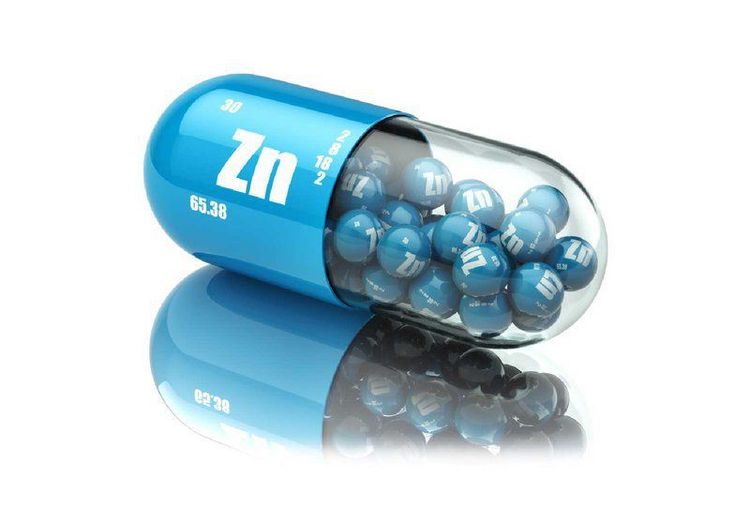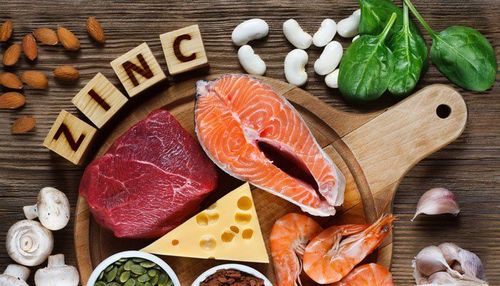Zinc is a mineral found in many foods such as red meat, wholegrain breads and cereals, dried beans, seafood and in small amounts in breast milk. Zinc is important for the normal growth and development of the reproductive organs and brain, and plays a role in the normal functioning of the immune system and many other processes in the body.
Zinc deficiency has recently been linked to reduced growth, increased colds and infections, memory loss, learning disabilities, and poor attention. Deficiency is a major problem in developing countries.
1. The Importance of Zinc
Zinc is a trace mineral that stimulates the activity of more than 70 enzymes in the digestive and metabolic processes in the body. Children who are deficient in zinc will experience growth defects and abnormalities, poor immunity, and impaired brain function; this makes zinc an important nutrient in any diet. In addition, zinc is also necessary for the growth and development of reproductive organs in children.
Zinc has high concentrations in the brain in the hippocampus, cerebral cortex, mossy fiber bundle… zinc deficiency will lead to peripheral nervous system disorders, causing schizophrenia
Regulates neurotransmitters, supports cognitive development, zinc deficiency will lead to behavioral disorders
Helps transport calcium into the brain, zinc deficiency causes this transport to be hindered, easily causing irritability
Prevents ADHD and increases concentration, improves memory, enhances learning ability
Regulates endocrine functions such as pituitary, gonads, thyroid, adrenal glands combined with neuroendocrine to regulate internal life activities, responds flexibly to external influences to help the body adapt to circumstances, so zinc deficiency makes people less adaptable to changes. Helps the body to treat common colds and diarrhea in children
- Zinc is distributed to the skin, hair, and nails to help them develop normally. Zinc deficiency causes hair to become brittle, turn yellow, nails to break easily, grow slowly, dry, dull skin, and white spots to appear on the skin
- Zinc deficiency causes taste sensitivity to be lost or reduced, causing loss of appetite, poor appetite, and can cause some diseases such as stomatitis…
- Helps synthesize growth hormone secretion to enhance immunity, fight infections
- Promote healthy height and weight
- Help the body produce proteins and DNA
- Heals wounds and prevents age-related macular degeneration
- Prevents retinal damage and vision loss
- Topical zinc ointment is applied to children’s skin to treat diaper rash and prevent sunburn.
- Zinc acts as a powerful antioxidant that helps reduce the risk of cancer for your child.

Zinc plays an important role in the human body.
2. Signs of zinc deficiency in children
- Children with zinc deficiency have symptoms such as anorexia, slow growth, unexplained vomiting, restless nights, waking up and sleeping less…
- Children have slow physical development, memory loss, increased risk of diarrhea, acute respiratory infections…
- Children experience skin and mucous membrane damage, slow wound healing, hair loss, fur loss…
- Children are prone to allergies, often have skin problems such as dry skin, eczema, psoriasis, acne, nail dermatitis…
- Children have white spots on the soles of their fingernails, nails with stripes, brittle and easy to break, nails that take a long time to grow.
- Children have late puberty.
- Consult your doctor if your child has the above signs.
3. How much zinc does your child need?
Zinc is essential for the body’s functioning and growth, but should only be taken in the recommended doses as follows:
- 0–6 months – 2mg
- 7 months to 3 years – 3mg
- 4–8 years – 5mg
- 9–13 years – 8mg
- 14–18 years – 11mg
- Girls aged 14-18 only need 9mg per day
- Adolescents are advised not to consume more than 34 milligrams of zinc per day. Too much zinc in the body can cause children to experience various harmful side effects.
4. Good sources of zinc

Zinc is found in some natural foods.
Our bodies cannot produce zinc on their own, so we need to supplement zinc from natural food sources in our daily diet. Here are some zinc-rich foods for children:
- Nuts: Most nuts are a great source of zinc, making them a great addition to your child’s diet because they contain fiber, good fats, vitamins and essential minerals. Seeds such as sesame, hemp, mustard, pumpkin and chia seeds contain a rich amount of zinc.
- Whole grains: Whole grains (wheat, oats, rice) are still popular because they provide other important nutrients such as fiber, B vitamins, magnesium, iron, phosphorus, manganese and selenium. But it is important to note that grains also contain a mineral called phytate, which reduces the body’s absorption of zinc.
- Meat: All types of meat contain a rich amount of zinc. Eat skinless poultry or lean meat to get enough zinc.
- Low-fat milk and yogurt: We always think that dairy products are rich in calcium. But we forget that most dairy products such as low-fat milk and yogurt also contain a small amount of zinc. Give your child low-fat milk and yogurt to supplement the necessary trace elements. Each cup of yogurt contains 2.2 mg of zinc.
- Beans: All beans contain a rich amount of zinc. However, the absorption of zinc in beans is lower, due to the presence of anti-nutrients – phytates. You can include beans in your family’s meals to provide important fiber and protein. If your child shows signs of zinc deficiency, give him boiled chickpeas as a snack.
- Seafood: Oysters are the best choice to meet the need for zinc, an average oyster contains about 5.3 mg of zinc.
However, not many children can eat oysters, but do not worry because the zinc content in lobster and crab is not bad. The amount of zinc in food is different, so depending on the needs and tastes of children, you choose food and balance nutrition for children.
5. Can your child get too much zinc?
Sometimes you worry about whether your child is getting enough zinc through food and decide to give them zinc supplements, but the advice is not to do so without consulting your doctor. Zinc supplements have potential side effects that you cannot foresee if you take the wrong dose.
Always give the prescribed dose and do not overdose your child with zinc as overdose can also lead to various health complications such as:
- Side effects such as vomiting, nausea, diarrhea and abdominal pain may occur.
- High doses of zinc in children have been linked to increased blood cholesterol levels and recurrent infections.
- May interact with other medications such as immunosuppressants, blood pressure medications and antibiotics.
- Children under 18 years of age are not recommended to use over-the-counter zinc supplements unless prescribed by a doctor.
- Do not use zinc intranasally if you choose to give your child zinc supplements because it is associated with loss of smell.
- Long-term use of zinc supplements can lead to toxicity.
In addition to zinc, children also need to be supplemented with the micronutrient lysine, essential micronutrients and vitamins such as zinc, chromium, selenium, and B vitamins to fully meet nutritional needs, support digestion,





